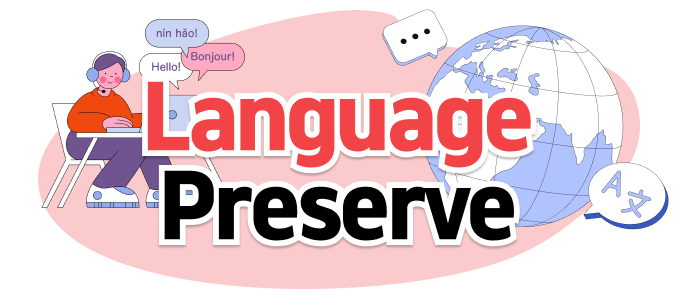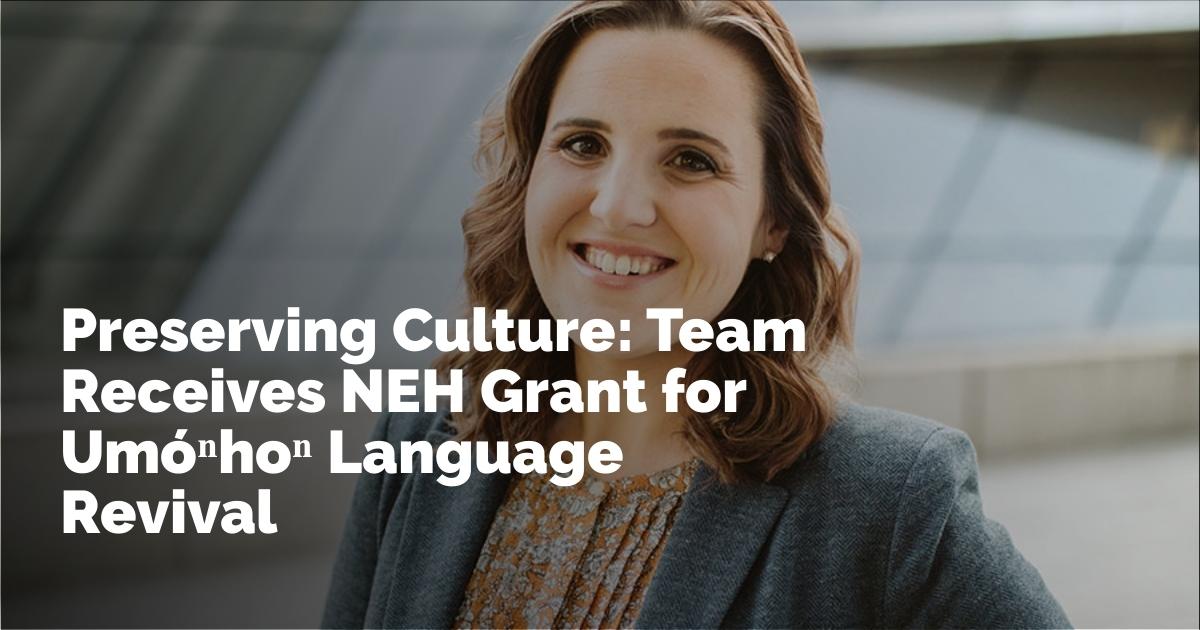Andrella, Team Awarded Major Grant to Preserve the Umóⁿhoⁿ Language
In an inspiring collaboration, Knox College Digital Humanities Postdoctoral Fellow Jennifer Andrella has joined forces with a team of dedicated scholars and educators to save the endangered Umóⁿhoⁿ (Omaha) language. This ambitious effort recently received a significant boost with a $448,551 grant from the National Endowment for the Humanities (NEH). This funding is crucial in covering various costs associated with the project, including travel, labor, equipment, and compensating the language speakers who play an essential role in this endeavor.
The Vision of Language Preservation
Jennifer Andrella, who became a part of Knox in 2022, plays a vital role in the Abolition for All Time Lab. Her work as a historian delves into the nineteenth-century history of the United States and Native American history. As a scholar specializing in Digital Humanities, she focuses on preserving digital cultural heritage and the vital issue of data sovereignty. In this project, these interests and expertise converge to tackle the challenge of a language on the brink of disappearing.
The initiative, aptly titled "Collaborative Research: Documenting Connected Speech in an Endangered Language," will run from 2025 to 2027. With the number of fluent Umóⁿhoⁿ speakers dwindling to just 27, the urgency and importance of this work cannot be understated. The project is a lifeline for the language, aiming to preserve its rich history and cultural significance for future generations.
The Collaboration and Community Approach
Integral to this initiative is its collaborative essence. The project involves esteemed institutions like Yale University and Grinnell College, as well as the Umóⁿhoⁿ Nation Public School in Nebraska. Among the leading minds in this endeavor are principal investigators Edwin Ko of Yale University and Albert Lacson of Grinnell College. Jennifer Andrella steps in as a digital consultant, where her responsibilities encompass devising a comprehensive digital archive and an online dictionary for the Umóⁿhoⁿ language.
The goal is immense: not only to preserve oral histories and educational materials collected over decades by Umóⁿhoⁿ language educators but also to ensure these invaluable resources are accessible to learners and researchers worldwide. As Andrella passionately notes, "It’s a daunting task, but it’s an important one," highlighting the unique opportunity to engage directly with the Omaha community, fostering a truly community-centered approach to language preservation.
Building a Lasting Legacy
The two primary pillars of the project revolve around documentation and accessibility. First, the team aims to record oral histories and narratives from the existing speakers. These narratives are vital cultural artifacts, serving as a bridge between past and future. Secondly, the creation of a digital archive and dictionary will provide a permanent record, ensuring the language's availability far beyond its present speakers.
The grant-funded work is set to commence in the summer of 2025. The initial phases focus on organizing the existing wealth of materials and setting up a solid foundation for the digital repository. By investing in these elements, the project seeks to not only preserve a language but also set a precedent for how endangered languages can be documented and revitalized ethically and sustainably.
An Ethical Model for Future Initiatives
A key objective of the project is to model an ethical approach in language and cultural documentation, significantly deviating from historical methodologies that were often extractive. This new model emphasizes sustainability and responsibility, establishing a framework that could inform future initiatives across the globe.
The work that Jennifer Andrella and her team are embarking on transcends the realm of academia. It is a cultural mission, one that recognizes the intrinsic value of language as a living repository of culture, history, and identity. Through their collective efforts, they strive to ensure that the Umóⁿhoⁿ language not only survives but thrives, continuing to teach and inspire generations to come.
출처 : Original Source

